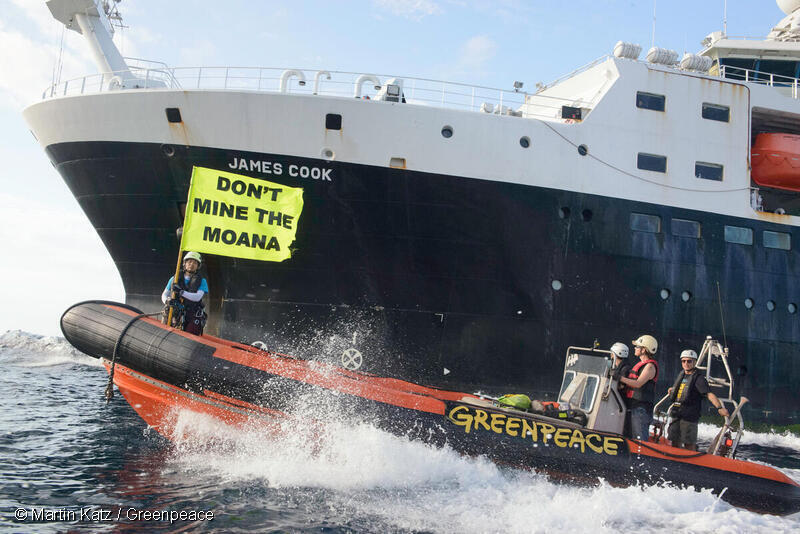
Right now, countries are gathering at the International Seabed Authority (ISA) in Jamaica to debate whether companies should be allowed to mine the deep ocean for profit. The frontliner? Canada-based The Metals Company, led by profit-hungry CEO, Gerard Barron, who is willing to bypass international law and collaborate with Trump to tear up the ocean floor and turn it into his personal golf range. But this past week, the ISA sent Barron and TMC a clear signal: ignore the rules, and you will face consequences. After months of silence, and despite being home to The Metals Company, Canada must step up to protect the world’s oceans and push for a global moratorium on deep-sea mining.
A corporate rush into the unknown
Picture this: truck-size robots crawling across the deep-sea floor to remove mineral-rich materials, tearing up fragile marine ecosystems in the process. This isn’t science fiction, it’s the dream of TMC’s Gerard Barron – think Elon Musk, if Musk thought the Mariana Trench was a startup opportunity… He’s on a mission to remove polymetallic nodules off the seabed, and wrongfully insists wrecking the ocean floor is essential for the clean energy transition. But scientists, Pacific nations, Indigenous leaders, and environmental groups around the world disagree. We don’t need deep-sea minerals for the energy transition, and we certainly don’t need another tech-bro CEO like Gerard Barron, to continue a legacy of exploitation and disregard for frontline communities.
The deep sea, which makes up 90% of the ocean, is the beating heart of the marine ecosystem. It’s one of the planet’s last untouched frontier, a diverse and immense biome home to otherworldly species we’re only beginning to discover, and acts as the largest carbon sink on Earth. Scientists warn that mining this fragile, undiscovered world would cause irreversible damage. Deep-sea mining would provoke habitat loss and could deeply impact whales and other marine mammals’ capacity to communicate underwater due to the risk of mining-generated noise. And the impacts on communities won’t be shared equally. Pacific island nations, coastal communities and Indigenous Peoples, whose cultures, economies, and food systems rely on a healthy ocean will face its most severe impacts if deep sea mining is permitted to start.
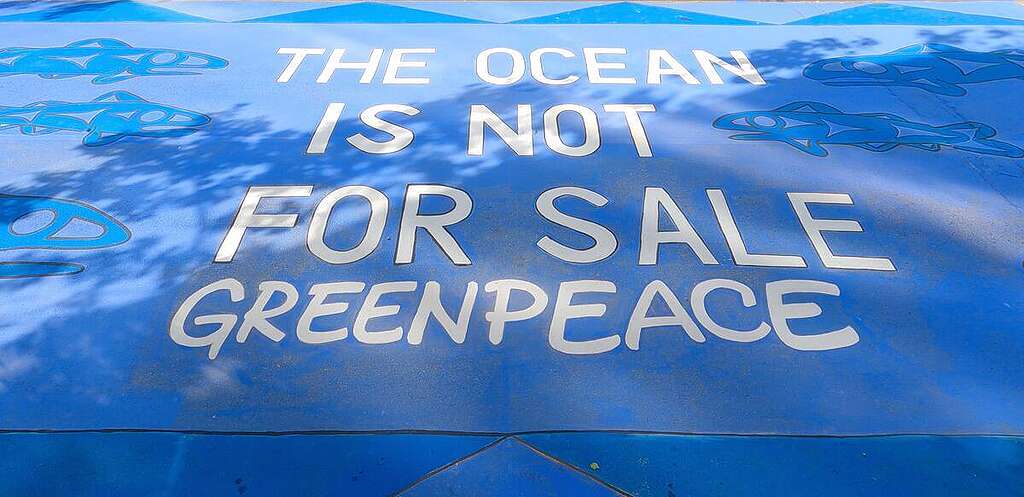
The tide is shifting
In early July, Greenpeace Canada joined Coast Salish artists and activists to paint a bold mural in front of the headquarters of The Metals Company (TMC) in Vancouver. We painted a giant and colourful reminder that the ocean is a sacred space for humanity, not a sacrifice zone for corporate profit.
In response, TMC’s CEO, Gerard Barron, called Greenpeace activists “eco-terrorists”. Ridiculous? Yes. Telling? Absolutely. But what’s the real danger here? The peaceful Indigenous artists, the Greenpeace activists, allies, and kids painting to raise awareness about the dangers of deep-sea mining, or the CEO wanting to mine the ocean at all cost?
By teaming up with Trump to fast-track deep-sea mining in the Pacific Ocean, Barron’s TMC wanted to make a mockery of international law. But this past week, the ISA Council, which Canada is a part of, called them out. Governments responded to TMC’s reckless behaviour by launching a formal investigation into whether its subsidiaries (NORI and TOML) are violating their legal contracts. That means their licenses may not get renewed, and any other profit-hungry CEO like Barron is now warned: you cannot bypass international law just because things don’t go your way. Any other companies eyeing the ocean floor now knows: if you break the rules, the world will push back.
What happens at the ISA does not stay at the ISA
Right now, the ISA Assembly is gathering for the last week of negotiations. Despite heavy pressure from industry to finish regulations and deliver a Mining Code–a rulebook that could greenlight the industrial exploitation of vast areas of the ocean floor–it’s now time for Canada to break its dangerous silence and stand up to Trump and The Metals Company’s corporate greed. As a member of the ISA Council and home of The Metals Company headquarters, Canada must publicly reaffirm its commitment to a global moratorium on deep-sea mining. Canada must also support and uplift local and Indigenous voices in the decision-making rooms at the ISA to ensure the realities of coastal communities aren’t drowned out by tech-bro wannabes who will stop at nothing to sacrifice nature for profit.
The deep ocean isn’t a playground for greedy bullies to profit from. It is humanity’s shared heritage. The choice is clear: we need Canada to help safeguard the ocean, not let corporate interests carve up one of the planet’s last untouched frontiers for short-term profit.

Add your name to demand that Canada lock the seabed out of reach for extractive industries.
Take action
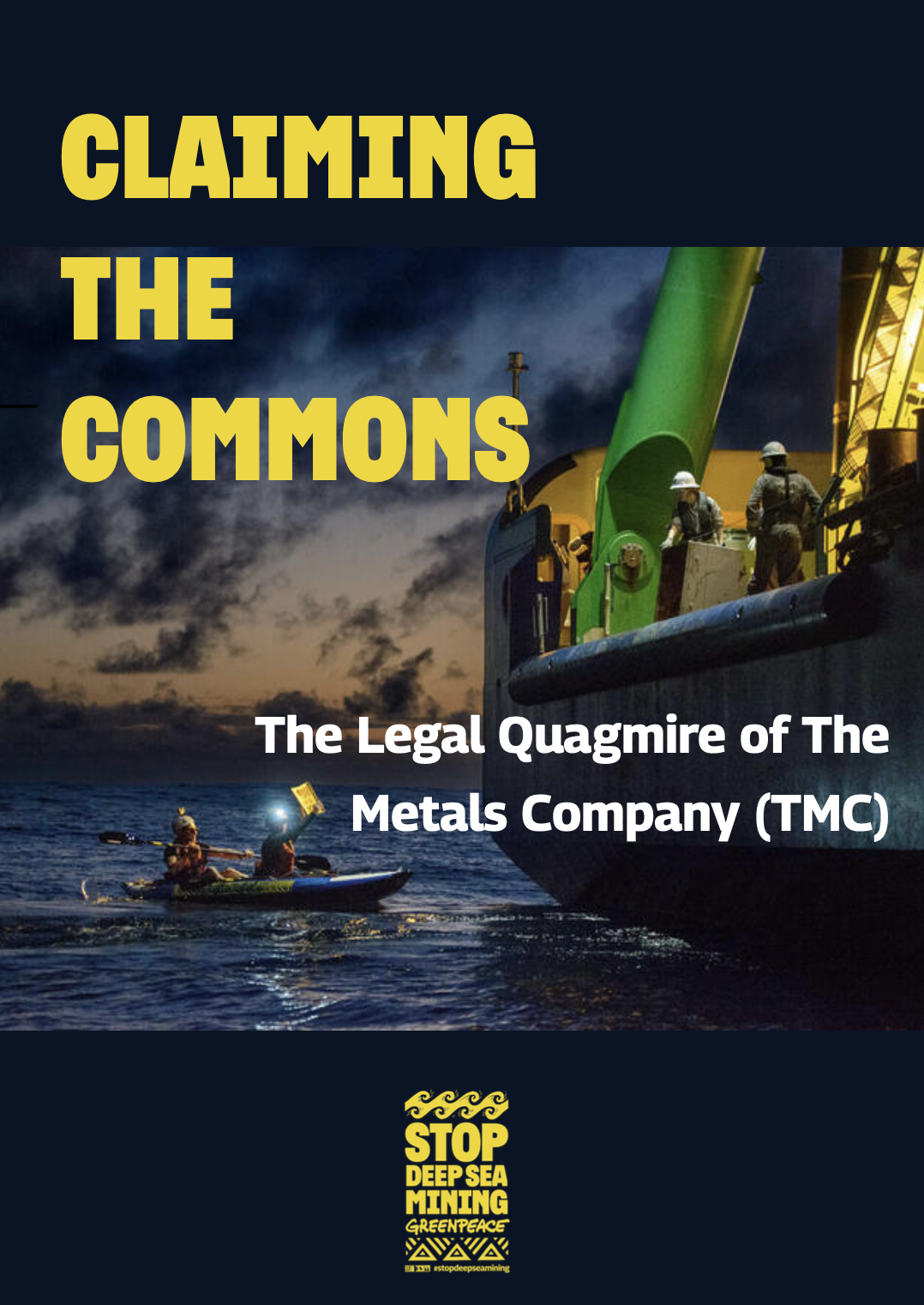
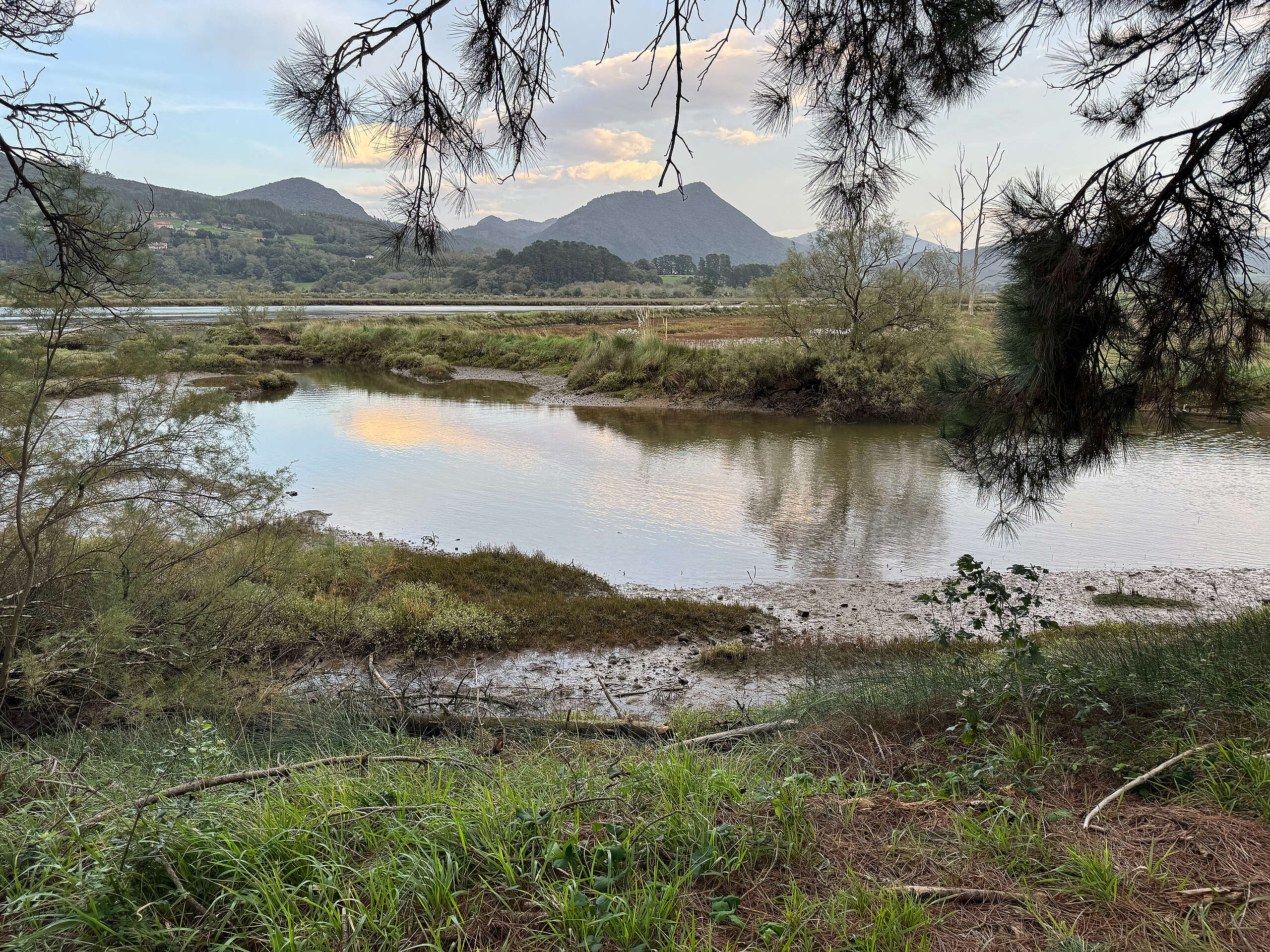
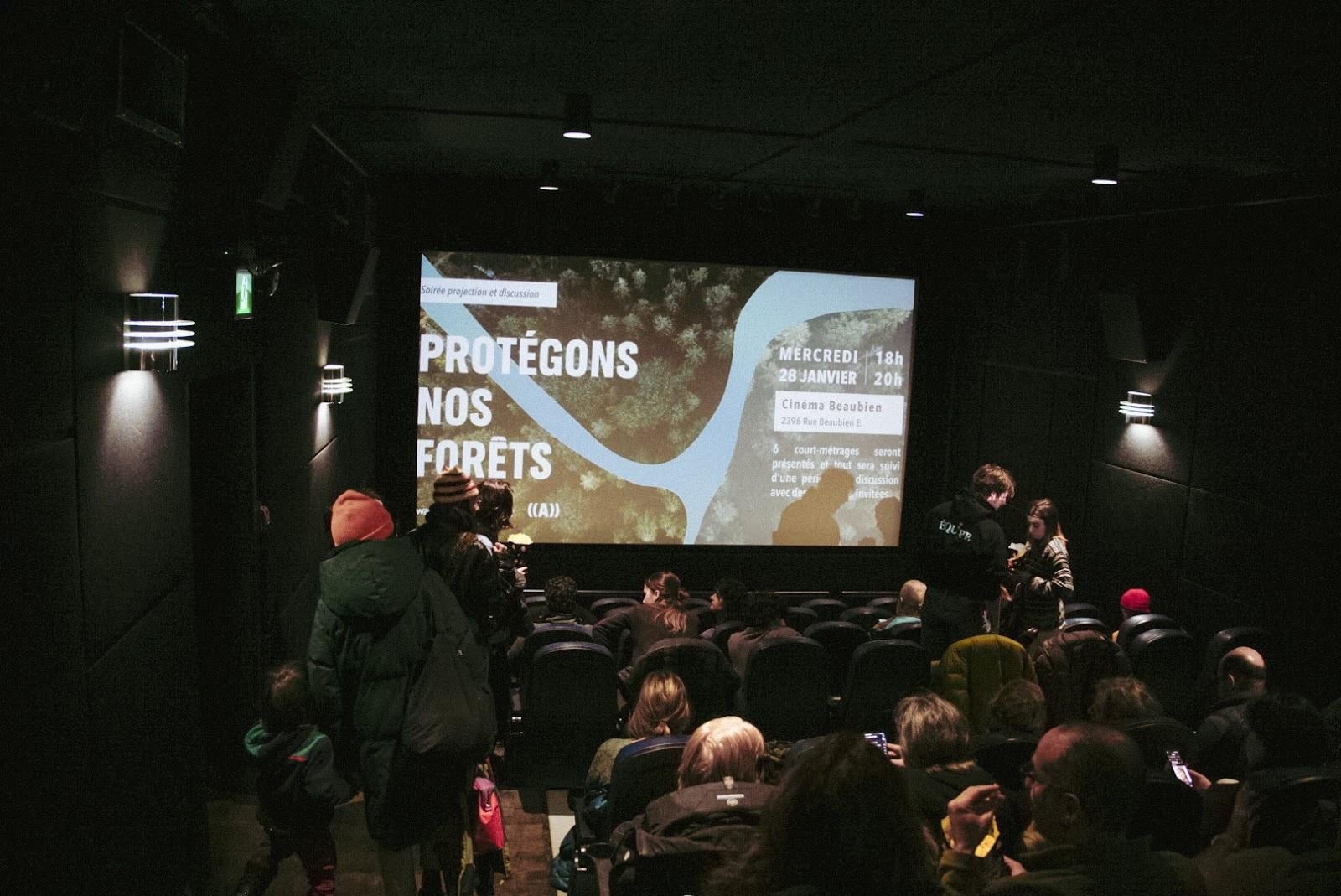
Discussion
Il n'y a aucune justification et il est irresponsable de ne pas tenir compte des contrôles requis pour planifier des projets d'exploitation du fond des océans. Que l'argent serve à protéger la planète et non à l'exploiter sans retenue.